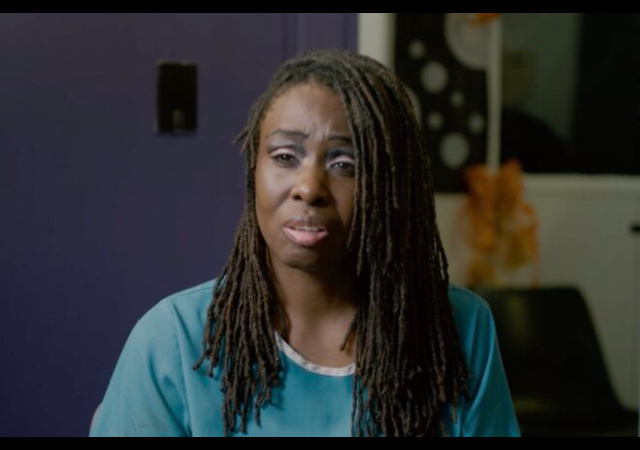Woman Who Accused Three Duke Lacrosse Players of Rape Admits She Lied, Seeks Forgiveness

Crystal Mangum, the woman whose false allegations of rape against three Duke Lacrosse players 18 years ago sparked a nationwide media frenzy, has admitted to lying. She also requested forgiveness from the men.
Mangum’s confession came during a jailhouse interview with Katerena DePasquale for her podcast “Let’s Talk with Kat” which aired on Dec. 11. Mangum is currently serving time at the North Carolina Correctional Institution for Women “after being convicted of second-degree murder of her then-boyfriend in 2013.”
Her false accusations in March 2006 upended the lives of David Evans, Collin Finnerty, and Reade Seligmann, and captured the attention of the nation. The young men suddenly found themselves at the center of a media firestorm that continued for 13 months. Ultimately, then-North Carolina attorney general Roy Cooper, “dropped the remaining charges against the players, [and] declared them ‘innocent.'”
The case was exacerbated by Mangum being black and the players being white.
Mangum told DePasquale, “I testified falsely against them by saying that they raped me when they didn’t, and that was wrong, and I betrayed the trust of a lot of other people who believed in me. I made up a story that wasn’t true because I wanted validation from people and not from God.”
The Duke Chronicle reported that during the interview, Mangum “referred to the three accused lacrosse players as her ‘brothers,’ saying they ‘didn’t deserve [the accusations].’ I hope that [the players] can heal and trust God and know that God loves them and that God is loving them through me, letting them know that they’re valuable.”
Asked if she had any regrets, Mangum replied she had none, explaining, “Everything happens to get everybody to the point where they are and it’s all to show God’s love and His forgiveness, His grace and His mercy.”
The Chronicle provided a recap of events after Mangum reported to police that she had been raped by three Lacrosse players at a team house party on March 13, 2006, “where they paid to have two strippers — including Mangum — in attendance.”
Many members of the Duke community — and the nation — believed her. [Former Duke University President Richard] Brodhead led a widely criticized administrative response, in which the University did not push back on antagonism towards the defendants from the Duke community….The allegations triggered a widespread national response from the media, which spent months on and around Duke’s campus.Amid the national outcry, the University canceled the team’s March 25 game against Georgetown.“We have done this in view of the situation we’re now in,” Brodhead said in a press conference following the game’s cancellation. “There are questions so grave that are in the air, that for us to continue to play would be inappropriate.”Tensions heightened when an email written the night of the party by then-lacrosse player Ryan McFadyen was circulated, which joked about cutting the skin off of strippers. McFadyen later clarified that this statement was in reference to the movie “American Psycho.” The day the contents of the email were released, [then-head men’s lacrosse coach Mike] Pressler — who received death threats at the time — was asked to resign from his position as head coach by Brodhead. Pressler later successfully sued the University to void the resignation. Brodhead later moved to cancel the remainder of the season.
Then-Durham County district attorney and lead prosecutor in the case Mike Nifong, was appropriately disbarred the following year for “lying in court and withholding DNA evidence which ultimately absolved the defendants of responsibility for Mangum’s allegations.” According to The Chronicle, Nifong was running for reelection during the trial and spoke often – and openly – with the press. In a March 2006 interview with CBS News, he said, “there’s no doubt a sexual assault took place.”
Initially, Nifong said that the DNA would prove which players were innocent. However, once all of the tests came back negative, Nifong reversed his statement, noting that courts of law used to have to “deal with sexual assault cases the good old-fashioned way, [where] witnesses got on the stand and told what happened to them,” absent of DNA evidence.
Despite the media pile-on, some journalists saw through Mangum’s questionable and often shifting allegations. One of those was writer K.C. Johnson, who followed the case closely and used his “Durham-in-Wonderland” blog to expose the injustice unfolding before him. His closing comments on the case can be viewed here.
Although the players were exonerated in April 2007, their lives had been changed forever. The Chronicle reported:
Evans graduated in 2006, while Seligmann transferred to Brown University and Finnerty to Loyola University Maryland. Many journalists who reported on the case — including former Chronicle Editor-in-Chief Seyward Darby — appeared in ESPN’s 2016 documentary, “Fantastic Lies” to talk about the impact of the case.
Now, forgiveness is a wonderful thing and I’m glad Mangum has had a moment of clarity and found the courage to confess her lies publicly. But as far as lies go, this one was a whopper. And it may take time for these men (now close to 40) and their families, to let bygones be bygones.
No doubt their pain was softened by a settlement with Duke University in which each player received $20 million, a nice little nest egg to begin their new lives. Still, for all that these men endured at the whim of a confused, malicious young woman, forgiveness might be a tall order.
Elizabeth writes commentary for The Washington Examiner. She is an academy fellow at The Heritage Foundation and a member of the Editorial Board at The Sixteenth Council, a London think tank. Please follow Elizabeth on X or LinkedIn.
CLICK HERE FOR FULL VERSION OF THIS STORY